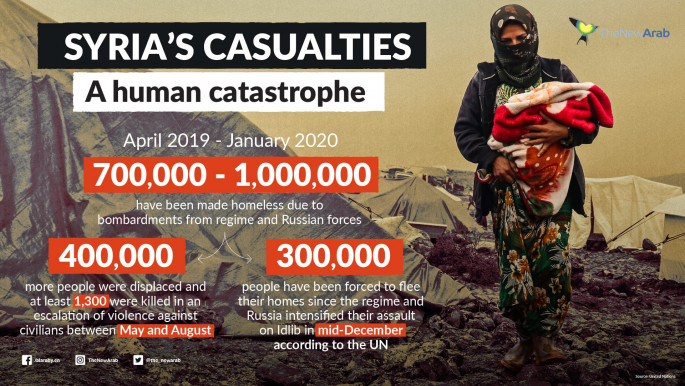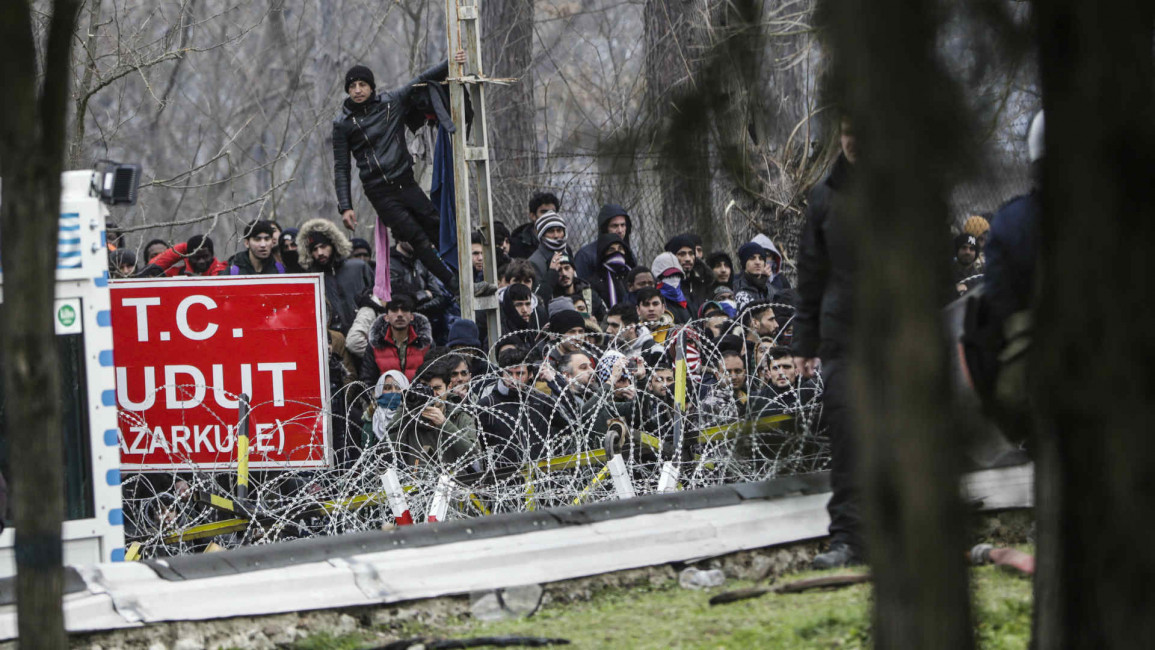Greek police fire teargas at migrants on Turkish border after Erdogan 'opens doors' to Europe
Young migrants lobbed rocks at Greek riot police as tear gas wafted through the trees on the frontier.
Turkey threatened on Saturday to allow tens of thousands of refugees to leave for Europe as President Recep Tayyip Erdogan stepped up pressure after dozens of Turkish troops were killed inside Syria.
Erdogan's comments raised the stakes on Saturday as he vowed to allow refugees to travel to Europe from Turkey which he said can not handle new waves of people fleeing Syria. It already hosts 3.6 million Syrian refugees.
The comments were his first after 34 Turkish troops were killed since Thursday in the northern Syria province of Idlib where Moscow-backed Syrian regime forces are battling to retake the last rebel enclave.
|
"What did we do yesterday? We opened the doors," Erdogan said in Istanbul. "We will not close those doors ...Why? Because the European Union should keep its promises."
He was referring to a 2016 deal with the European Union to stop refugee flows in exchange for billions of euros in aid.
In Athens, Greek Prime Minister Kyriakos Mitsotakis held an emergency meeting to discuss the border.
Erdogan said 18,000 migrants have amassed on the Turkish borders with Europe since Friday, adding that the number could reach as many as 30,000 on Saturday.
Thousands of migrants stuck on the Turkish-Greek border at Pazarkule were in skirmishes with Greek police on Saturday who fired tear gas to push them back, according to AFP photographer in the western province of Edirne.
Ahmad Barhoum, a Syrian refugee, said he was trapped at the border since Friday.
"If they do no open we will try to cross by illegal means. It's out of the question for us to go back to Istanbul," he told AFP.
"I hope that they will end up letting us in so that we can start a new life in Europe worthy of human beings," said one Egyptian refugee.
Patrols, tear gas, drones
In 2015, Greece became the main EU entry point for one million migrants, most of them refugees fleeing the Syrian civil war. The pressure to cope with the influx split the European Union.
"Greece yesterday came under an organised, mass, illegal attack... a violation of our borders and endured it," government spokesman Stelios Petsas said Saturday after the emergency meeting with Mitsotakis.
"We averted more than 4,000 attempts of illegal entrance to our land borders."
|
A Greek police source said security forces fired tear gas on Saturday against migrants on the Turkish side because they had set fires and opened holes in border fences.
Armed policemen and soldiers patrolled the Evros river shores - a common crossing point - and warned with loudspeakers not to enter Greek territory. Drones also monitored migrant movements.
"I believe that the borders have been protected," Defence Minister Nikos Panagiotopoulos told Skai television.
Read more: Refugees and riot police clash as tensions reach boiling point on Greek Islands
According to Hellenic Coast Guard, from early Friday to early Saturday 180 migrants reached the islands of Eastern Aegean, Lesbos and Samos in sea crossings.
The UN said nearly a million people - half of them children - have been displaced in the bitter cold by the fighting in northwest Syria since December.
'Pay a price'
Meanwhile, Turkey said its forces destroyed a "chemical warfare facility," just south of Aleppo, in part of its military retaliation after its soldiers were killed in Idlib.
"We would not want things to reach this point but as they force us to do this, they will pay a price," Erdogan said.
But the Syrian Observatory for Human Rights, which relies on sources inside the war-torn country, said Turkey instead hit a military airport in eastern Aleppo, where the monitoring group says there are no chemical weapons.
Thirty-three Turkish soldiers were killed in an air strike by Russian-backed Syrian regime forces on Thursday, the biggest Turkish military loss on the battlefield in recent years. A 34th Turkish soldier has since died.
The latest incident has raised further tensions between Ankara and Moscow, whose relationship has been tested by violations of a 2018 deal to prevent a regime offensive on Idlib.
As part of the agreement, Ankara set up 12 observation posts in the province but Syrian President Bashar al-Assad's forces - backed by Russian air power - have pressed on with a campaign to take back the territory.
Read more: For Syrians fleeing Idlib, there is nowhere left to run
On Friday, Erdogan spoke by phone with his Russian counterpart, Vladimir Putin, in a bid to scale down the tensions, with the Kremlin saying the two expressed "serious concern" about the situation.
Erdogan may travel next week to Moscow for talks, according to the Kremlin. But the Turkish leader remained critical on Saturday.
"I asked Mr Putin: 'What's your business there? If you establish a base, do so but get out of our way and leave us face to face with the regime,'" Erdogan said.


![Security forces reportedly attacked Egyptian protesters outside the UN Women's Office in Cairo. [Facebook]](/sites/default/files/styles/image_330x185/public/2024-04/Facebook.jpg?h=dec22bcf&itok=X6dF46EV)
